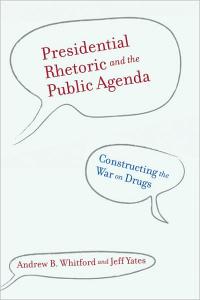The proposed Coburn amendment to eliminate the political science division of the National Science Foundation and funding for political science research has once again raised the question of whether academic research is relevant to real-world problems.
The controversy over electing judges provides interesting insight into this question, particularly when examining the reactions of the advocacy community to scientific studies of judicial elections published in the nation’s leading academic journals, law reviews, and commercial presses. While there certainly are valid criticisms of empirical studies of judicial selection, it simply is the case that empirical findings that contradict political strategies and goals will not be acknowledged and incorporated into the public dialogue no matter how relevant or compelling.
It has not mattered, for example, that empirical evidence has shown for decades that there are no measurable differences between judges chosen in partisan elections and judges chosen by other “less political” methods. Nor have many in the “reform” community demonstrated concern with the fact that nonpartisan elections effectively disenfranchise large segments of the electorate, raise the costs of seeking office, and open supreme court races to idiosyncratic forces. Similarly, recent evidence showing that confidence in courts is not lower in states using partisan elections has not been incorporated into the public dialogue, or the fact that elections are perhaps the most powerful legitimacy-conferring institutions in the world.
The bottom line is that contradictory evidence is irrelevant to actors pursuing their own agendas, an irony in the case of judicial selection since many of the most aggressive advocates against judicial elections are judges and attorneys. The same evidence also may seem, without effort to understand it, incomprehensible.
In fact, many advocates in the judicial selection controversy engage in forms of fact-finding quite removed from the standards and practices of scientific journals in political science, including the use of anecdotes to claim general tendencies or to discredit them, public opinion polls with biased question wording and flawed sampling strategies, incorrect and selective interpretation of poll results, and reliance on the opinions of “experts” as concrete evidence of problems that cannot yet be seen but nonetheless purportedly are looming. These are attempts to seek the truth but often produce evidence that does not withstand more rigorous scientific scrutiny.
There is another kind of problem, however, quite apart from sincere though flawed attempts to seek the truth. Best explained by Princeton University Professor Emeritus Harry Frankfurt in his illuminating essay On Bullshit, there is a distinct form of expression – “bullshit” – the defining characteristic of which is offering statements to suit one’s own purpose without much regard for whether the statements actually are true or false. Given the instrumental nature of political action (no matter how altruistically the goals of many advocacy organizations are stated) and the willingness to argue positions that may lack empirical support, academic work is ignored or dismissed, usually with flimsy arguments not befitting a badly educated high school debate team (more on this in my next post). As part of this, econometrics become easy to caricature among non-academics as being divorced from reality or as having some fatal flaw. Thus, “bullshit” is a powerful countervailing force to science.
In short, science and politics often are not compatible, and no amount of careful study, scientific rigor, or attempts to contribute constructively to the political process will change that. Even so, truth intrinsically is important, and the difficulties political scientists may encounter when engaging political actors does not render the enterprise any less worthwhile.
Melinda Gann Hall

